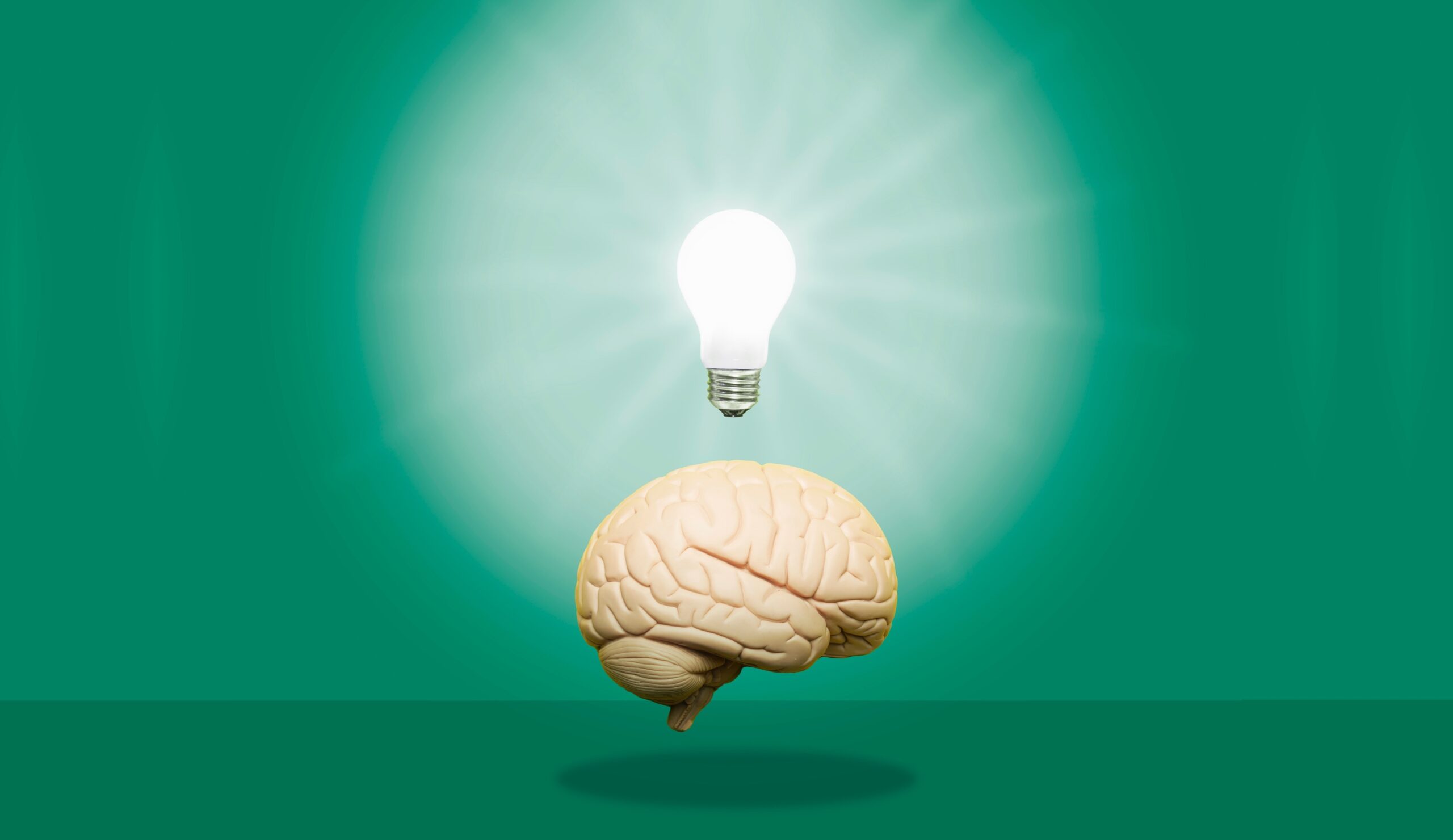That euphoric feeling when a great idea strikes or a challenging puzzle piece fits into place is electric–and also helps our brains. Now, a team of researchers from the United States and Germany have taken a peek inside the brain to see what those so-called aha, lightbulb, or eureka moments look like.
The new brain imaging shows that these flashes of insights reshape how the brain represents information and helps burn it into our memory. According to Maxi Becker, a study co-author and cognitive neuroscientist at Humboldt University in Berlin, if you have one of these aha moments when solving a problem, “you’re actually more likely to remember the solution.’”
The findings are detailed in a study published May 9 in the journal Nature Communications.
In the study, the team used functional magnetic resonance imaging (fMRI) to record people’s brain activity while they tried to solve visual brain teasers. These puzzles required the participants to fill in the blanks on a series of two-tone images with minimal detail. They needed to use their perception to complete the picture and identify the real-world object.
The team used these kinds of hidden picture puzzles as small-scale proxies for beginner eureka moments in the real world.
“It’s just a little discovery that you are making, but it produces the same type of characteristics that exist in more important insight events,” added study co-author and Duke University neuroscientist Roberto Cabeza.
For each puzzle that the participants thought they solved, the team asked three questions: did the solution simply pop into their head in a flash of insight, did they come to the solution in a more methodical or deliberate way, and how sure they were about their answer.
They found that participants tended to recall the solutions that came to them in a flash far better than ones they arrived at without this flurry of insight. Additionally, the more conviction a person felt about their solution at the time, the more likely they were to remember it five days later when they asked again.
“If you have an ‘aha! moment’ while learning something, it almost doubles your memory,” said Cabeza. “There are few memory effects that are as powerful as this.”
The team believes that several changes in the brain may cause humans to have a better memory for eureka moments.
Flashes of insight trigger activity in the brain’s hippocampus. This cashew-shaped structure is buried deep within the brain’s temporal lobe, and plays a major role in both learning and memory. The more powerful the insight when problem solving, the greater the boost of activity in the hippocampus.
[ Related: Why crossword puzzles get easier as you solve them, according to physics. ]
Additionally, the activation patterns across the participants’ neurons changed when they found a hidden object and saw the image in a new light. Certain parts of the brain’s ventral occipito-temporal cortex were particularly activated. This region of the brain is responsible for recognizing visual patterns. The stronger the participant’s epiphany, the greater the change in the ventral occipito-temporal cortex.
“During these moments of insight, the brain reorganizes how it sees the image,” said Becker.
The stronger “aha” experiences were also associated with greater connectivity between these different brain regions.
“The different regions essentially communicate with each other more efficiently,” said Cabeza.
This particular study followed brain activity at two specific moments in time: before and after a eureka moment. In future studies, the team plans to take a closer look at what happens during the few seconds in between that help people finally see the answer.
In addition to showing how our brains come up with creative solutions, these findings also support more inquiry-based learning in the classroom. These types of learning environments generally encourage insight that could boost long-term memory and understanding, according to the team.
“Insight is key for creativity,” Cabeza said.


